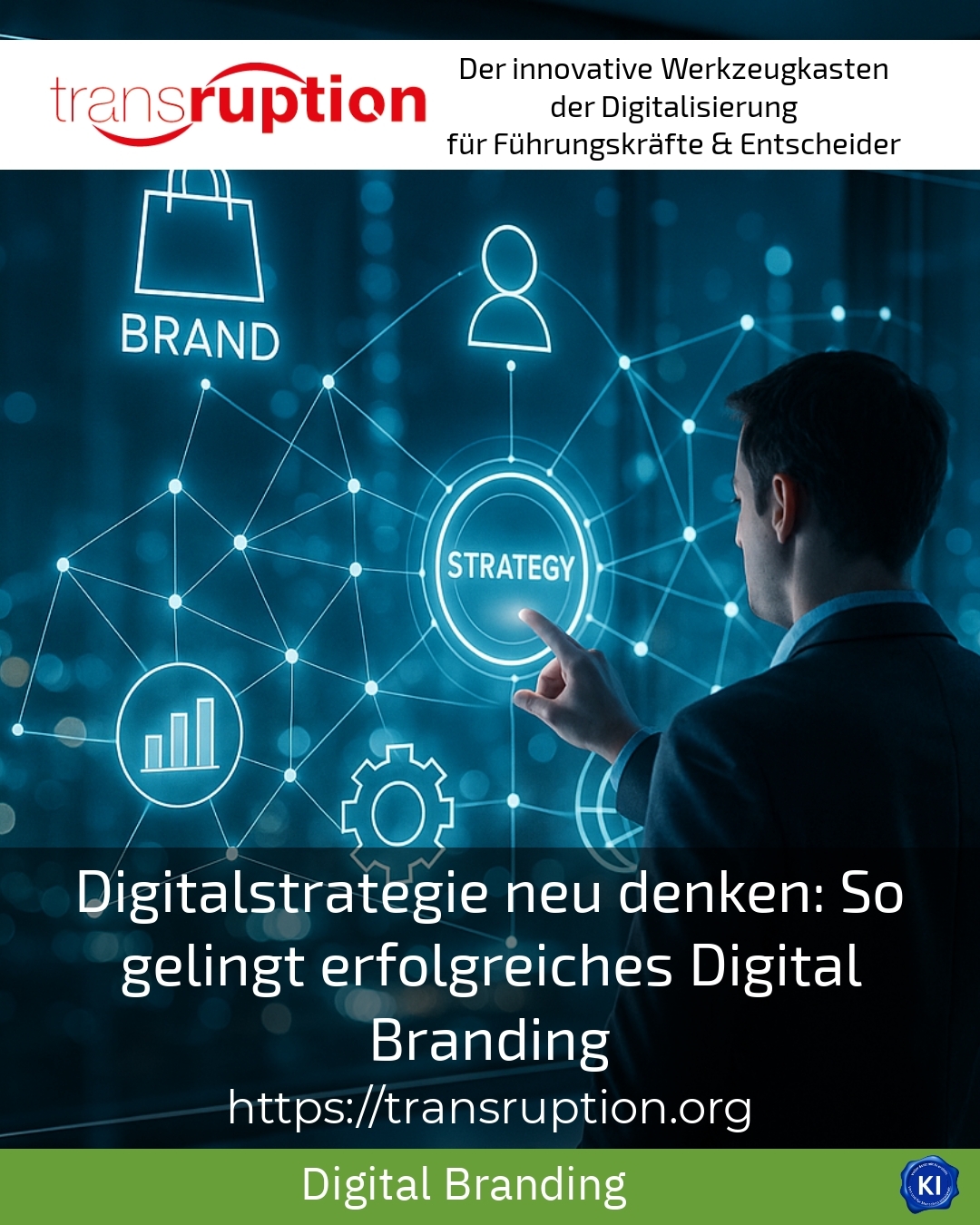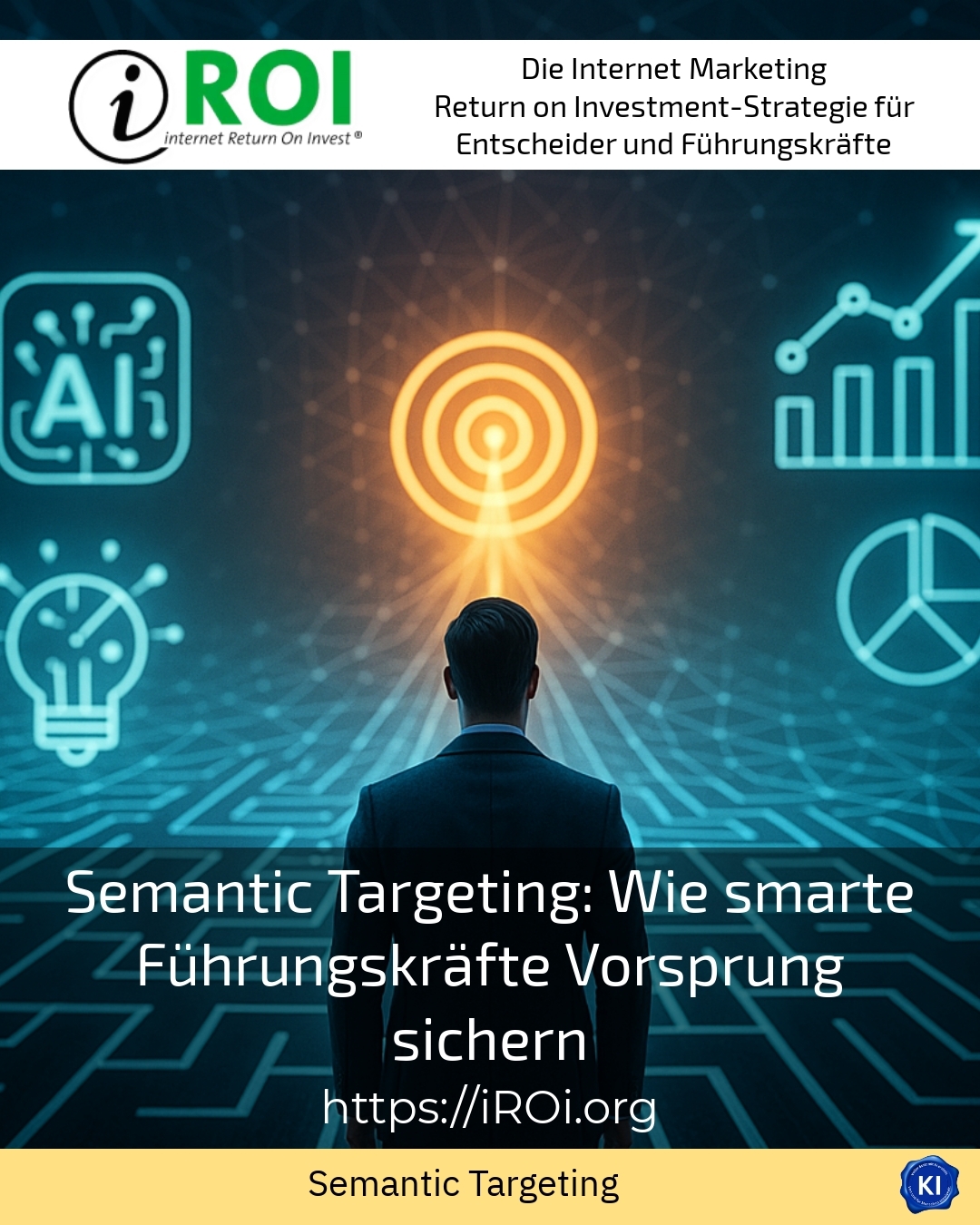Semantic targeting is becoming increasingly important for smart managers who want to secure their position in the market. This method allows a precise and context-based approach that goes far beyond traditional keyword strategies. Leaders are realising that a lasting impact can only be achieved through targeted content in relevant environments, because potential customers or partners are reached when the interest is actually there.
Semantic targeting - the key to precisely addressing target groups
In contrast to traditional targeting, semantic targeting does not just focus on individual keywords. Instead, this method analyses the entire context of website content. This allows adverts or content to be placed exactly where it makes sense in terms of content and where users perceive a high level of relevance. The semantic approach prevents wastage because the advertising messages are displayed in suitable topic areas.
Smart managers from the digital industry use semantic targeting to advertise e-commerce portals specifically on product pages. They ensure that adverts such as those for sustainable fashion only appear where sustainable content dominates. Software companies also benefit by making their solutions visible in specialist articles on digitalisation and automation, which significantly increases the conversion rate. Service providers from the healthcare sector also use semantic targeting to address their target groups on healthcare portals with suitable offers, which increases the acceptance of online adverts.
Best practice from the field
BEST PRACTICE with one customer (name hidden due to NDA contract) The company, which specialises in sustainable energy solutions, used semantic targeting to place its digital advertising specifically on pages with editorial content on climate protection. This enabled it to significantly increase its reach among ecologically minded consumers and double the click rate of its campaigns.
BEST PRACTICE with one customer (name hidden due to NDA contract) In the financial sector, a provider of investment advice used semantic targeting to place adverts exclusively in the context of family finance and wealth accumulation. The adverts reached interested parties precisely, which led to better lead quality.
BEST PRACTICE with one customer (name hidden due to NDA contract) Using semantic targeting, a sporting goods manufacturer focussed on publishing its campaigns in environments with outdoor and fitness themes. This contextual targeting increased relevance for the target group and resulted in a measurable increase in online sales.
How semantic targeting supports managers in shaping strategy
Managers benefit from semantic targeting above all through a well-founded decision-making basis for marketing expenditure. Precise targeting minimises budget waste and increases the efficiency of campaigns. You can select topic-specific environments in which advertising messages are better perceived.
For example, detailed semantic analyses enable managers in the B2B sector to present their products on specialist portals with corresponding thematic focuses. In the tourism industry, semantic targeting allows travel-loving target groups to be addressed in environments with content on holiday trends and destinations. Education providers also use this technology to position their courses in contexts with learning and further education topics so that interested parties are guided appropriately.
Success factors and practical tips
Intelligent utilisation of semantic targeting requires close cooperation between marketing managers and executives. It is advisable to define joint focal points and support projects with experienced coaching partners such as iROI Coaching. Particular emphasis should be placed on the continuous optimisation of campaigns, as context and user behaviour change dynamically.
Practical tips for managers who want to use semantic targeting:
- Carefully select subject areas that appeal strongly to your target group in terms of content.
- Use synonyms and related terms to cover semantic contexts.
- Use monitoring tools to measure and adjust campaign success.
Semantic targeting as a future strategy
The future of online marketing belongs to a targeted and context-rich approach. Semantic targeting opens up new possibilities here because it takes into account the entire semantic structure of content. This not only improves the user experience, but also increases the impact of marketing measures.
In a world full of digital offerings, smart managers can position their brand in the right context and thus achieve a significant competitive advantage. After all, those who understand the topics, interests and needs of their target group and serve them in a targeted manner create sustainable customer relationships.
My analysis
Semantic targeting offers managers in the digital age valuable support in managing campaigns precisely and contextually. The combination of in-depth content and a targeted approach reduces wastage and increases user acceptance. The examples from various industries show that this method can be used universally and is effective.
With the kind of expert support offered by iROI coaching, companies and managers can receive impulses that refine their marketing strategies and make them successful in the long term. Semantic targeting thus becomes an indispensable tool for securing a competitive edge.
Further links from the text above:
Ameo Agency - What is semantic targeting?
Inztitut - Semantic targeting explained
Becoming visible - meaning and benefits
CI Commerce - Precise target group approach
Adzine - Unified Semantic Targeting
For more information and if you have any questions, please contact Contact us or read more blog posts on the topic internet Return on Investment - Marketing here.
















